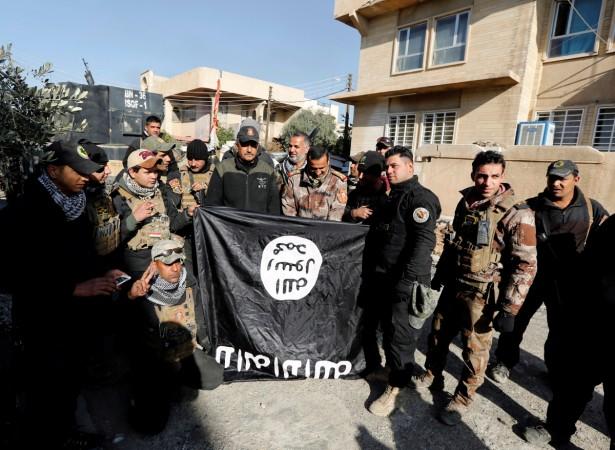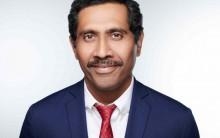
It seems the masterminds of terror attacks are very good at remembering anniversary dates.
On March 22, exactly after a year of the series of terror attacks in Belgium, another terror attack occurred in Europe, this time close to the UK parliament in London.
The coincidence of the date is not insignificant. The terrorists have conveyed the message that they are very much alive and kicking.
But what about those in charge of security? Europe has been facing a series of terror attacks, including those carried out by lone wolves, and it has been predicted that the year 2017 could be much worse than 2016.
Do security agencies have an answer to those working overtime to execute their sinister designs?
One can't ignore the fact that while terrorists have taken it to the next level, the security system has remained a largely state-centric concept and hence obsolete.
According to former India Peace Keeping Force Intelligence Corps chief Colonel Ramani Hariharan, jihadi terrorism has evolved into version 2.1 (from al-Qaeda to Islamic State to the latest lone wolf attacks) in which the operation is more decentralised and doesn't even require deadly weapons.
A knife or even a car can be turned into weapons to kill in no time. The latest trend in terrorism is about small groups or even an individual and simple tools.
Moreover, terrorists today also do not necessarily cover thousands of miles to commit an act of destruction. Like a job in the software industry, aspects of terrorism like recruitment and attacks, can also be outsourced to the targeted country, thanks to technological advancements.
From the perspective of security enforcement agencies, these make the prevention of terror attacks a much difficult task.
So, what's the way ahead for countries to prevent acts of terror?
Need to look at terrorism from a different perspective; it's no more black and white
First and foremost, the way of looking at terrorism as a threat has to change. The current American President, Donald Trump, for instance often calls on people to fight "radical Islamic terrorism" which is self-defeating.
It not only diverts the focus from the core issue of terrorism by attaching a religious tinge to it, but also creates the possibility of mutual distrust among nations in the fight against terrorism, reducing the chances of successfully combating the evil.
Why alienate the Muslim world and boost the terrorists' reason to wage war?
The concept of defence has to change
Secondly, the perception of defence as it is has to undergo a sea change.
The concept of security in international relations today is still dominated by that of the Cold War, when countries either chose to have a balance of power through alliances or collective security.
Today, when the international system is much more complex, with things no longer existing in black and white, it is very important for nations to look out for gray areas while devising methods to tackle terrorist threats.
Just as terror has decentralised; the same needs to happen with security
Thirdly, just like the act of terrorism has become a decentralised one, security, too, needs to follow a similar path. States and governments cannot really be blamed for failing to stop a random knife attack.
A state cannot man each and every corner of its territory. And the terrorists have taken full advantage of this by activating local cells without any large-scale mobilisation of men and weapons that can be easily detected.
For terrorists today, the ends are more important than the means. To stop the terrorists, authorities need to stress on community bonding and encourage people to be more resilient towards the evil to make terror a less-appealing avenue.
Terror has many layers today
Finally, terrorism today is not just an act of politics or war. An act of terror can also be an outcome of a radicalised individual's wounded thought process.
A person's dislike for same-sex relations can fuel hatred in him/her to go after and kill people.
Similarly, a person can go on a killing spree after finding his own economic status in peril in his own country. Thus terrorism is also a complex internal threat and that makes it very very difficult to deal with using state institutions like the army, police and intelligence alone.
Politically, too, it is the state's duty to ensure that its administration is not biased and doesn't appease one group (which invariably will alienate another). The idea of universal and compassionate administration is also very significant to ensure that people's sentiments are not hurt and they walk dangerous routes.
From France, US, Belgium, Germany, Bangladesh, UK... the list of attacks is only getting longer because there is still no mechanism in place to take on the multi-layered menace.
And for that mechanism to take shape, the world requires a united mindset. Till the time this does not happen, it is difficult to guarantee security.
About Khaled Masood: The Westminster attacker
- The man who mowed down pedestrians and stabbed a policeman outside the UK parliament is 52-year-old Khalid Masood (born Adrian Russell Ajao; aka Adrian Elms), a former convict. He had been convicted for several offences earlier, though none of them was related to terror.
- Masood had been brought up by a single mother in the south English town of Rye.
- Commentators felt 52 is on the higher side for a man to be radicalised, as Massod has been. Other extremists who have carried out similar attacks were much younger.
- Masood rented the car he used to travel to the scene of the crime, from an agency on the outskirts of Birmingham.
- According to British media, Masood was a Muslim convert with some sources even describing him as a "well-spoken man".
- While one report said Masood had a young Asian spouse and a small child, other reports said he was a father of three.















